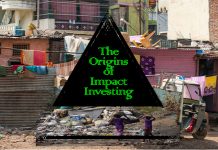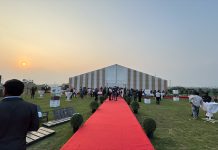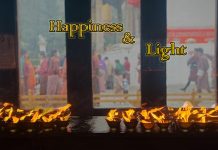PROMINENT local architect Tay Kheng Soon was interviewed on radio recently.
While he had many interesting things to say, the reactions and comments of his interviewer, Bharathi Jagdish of 938LIVE, offered some insight on how the mainstream media in Singapore engage with those who are sometimes publicly critical of the government.
To the radio station’s credit, they gave Tay a “live” platform to express his views. He was introduced as a “veteran architect” and “outspoken maverick”.
The first description is generally correct reporting, though some might detect a wisp of ageism. Tay was born in 1940 and has been an architect for a long time. However, the second description is the interviewer’s and radio station’s opinion. In some circles, he may not be seen as an outspoken maverick, but an underappreciated visionary. The point is that labels like this are unnecessary.
By mentioning it, the radio subtly gave listeners the heads-up that some unorthodox ideas, by its own frame of reference, were about to be unleashed by Tay.
It should not be a radio station’s job to determine what is orthodox and what is not.
An objective media should attach equal merit to both orthodox and unorthodox thoughts and ideas, and just let listeners or readers decide. So, from the outset, the interview was somewhat tainted by the two simple words, “outspoken maverick”.
There were several threads of thought discussed during the interview. One of the most interesting was an exchange on why he had never joined the political scene. “You could have tried to change things from within,” noted the interviewer.
Change From Within
This brings up two issues. First, she made the assumption that if Tay did go into politics, he would join the ruling People’s Action Party (PAP). Otherwise, he couldn’t be in a position “to change things from within.”
Second, it is interesting that the interviewer would know that joining the ruling party could be a gateway for Tay to foster change from within.
Tay replied that he couldn’t subject himself “to party discipline or to be a henchman of somebody. So, the only way to make a contribution to society was just to be very open and public about it.” This seems a fair path to take for an ideas man.
As a follow-up question, some reporters may have asked him what he meant by the term “henchman”. The interviewer instead asked him whether he had ever considered engaging the government in private. “Maybe that would have gone down better,” she assumed.
You might also want to read:
May Day! Repetitious Vicious Circle Ahead!
Video Referee — For Justice Or Ratings?
Modify For Approval
The interviewer went on to tell Tay that if his approach was causing the government not to listen, he should consider modifying his approach. If he didn’t, “good ideas may be wasted,” she added.
It suggests that ideas are not wasted only if the government listens to them.
This would be an unfortunate development for Singapore.
It is educational to highlight this interview as it alludes to a problem, which seems to be creating barriers to Singapore’s progress at this point in its history.
Basically, in this interview, we saw a pro-government stance versus a pro-ideas position. Journalism principles aside, it is clear that the interviewer is passionate about what she believes in. Her comments and questions were spontaneous and almost instinctive. On the other side of the microphone, Tay stressed that the cogency of ideas was the most important thing, and eschewed any political baggage attached to ideas. His passion is well documented.
What may be helpful is if such counteracting passions can freely exist side by side in Singapore society with no fear or favour, just as they did in the radio interview.
Such passions should be allowed to coalesce to contribute to an organic whole. A unidirectional approach where new ideas tend to be placed in silos may have been useful to Singapore in the past, but it is a heavy weight in this information and technology age.
New ideas and types of engagement between all Singaporeans that add layers of messiness, chaos and colour to Singapore’s renowned efficiency and smooth functioning should become the norm. That is the basis of more organic change which could help Singapore on the road ahead.
Thus It Was Unboxed by One-Five-Four Analytics presents alternative angles to current events. Reach us at 154analytics@gmail.com






















